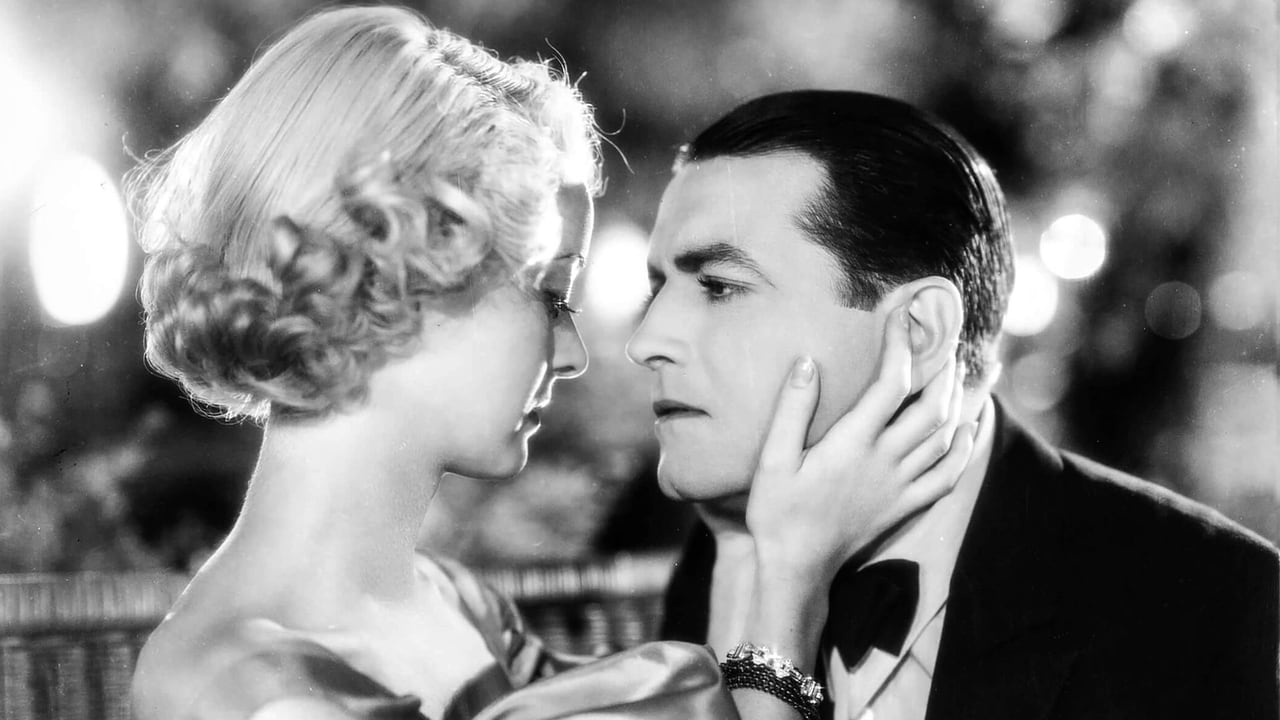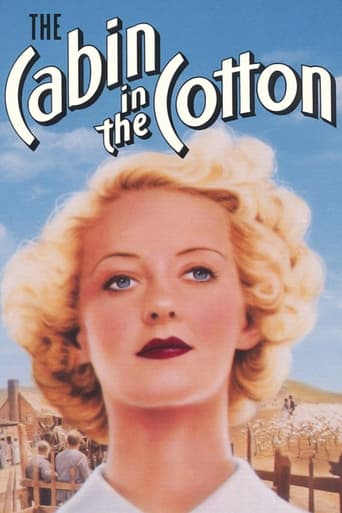

NOTES: Keighley told me he was the "dialogue director" on this film. Also see "Films in Review" October 1974.COMMENT: Although the Foreword is careful to point out that this film isn't going to take sides between the planters and the peckerwoods, it is pretty clear which side the scriptwriters favor. Certainly the planters do get a few arguments in, but Berton Churchill who plays his characteristic role of blustering double-dealing is hardly an ideal spokesman. Still, leaving aside the question of the rights and wrongs on either side - which is now only of historical interest anyway - the film has an engrossing story which is just as exciting to-day as when it was first presented back in 1932. If anything the film is much less dated than the usual plantation drama thanks to the skilled direction of Michael Curtiz which concentrates on a crisp and realistic handling and the script's development of character and its avoidance of some of the more usual melodramatic clichés. Two aspects I like are the genuine affection that obviously exists between father and daughter, never overtly stated but plain from their bearing and attitude towards each other, and the fact that Bette Davis receives no more than a climactic snub for her "sin" - actually none of the participants are punished for their crimes. Yes, this realistic script is a far cry from the tinselly, if idealistically "moral" reversions of normal human behavior that Hollywood was to turn out under the repressive hand of the Motion Picture Production Code. Curtiz's realistic handling is hampered in the early stages by the use of obvious stock shots and process backgrounds. Fortunately, this practice ceases quite early on. Curtiz directs the whole film in short, brisk takes (superlatively edited by George Amy). Barney McGill's exquisite photography also ranks as a major asset not only for his broodingly atmospheric night scenes and the sparkle and whiteness of the plantation house episodes, but for the wonders he has done with Bette Davis. Davis certainly looks most attractive in this made-to-order part of the rich and spoilt daughter. She acts with appealing vivacity too, making the most of such lines as "I'd like to kiss you, but I've just washed my hair!" Co-star Richard Barthelmess is inclined to over-do the facial expressions indicating indecision and is not too believable as a poor sharecropper (he is too well-groomed and speaks too well), but I like him. He has a personality that is exactly right for this kind of role. The rest of the cast is most capable.
... View More"Cabin in the Cotton," made in 1932, is famous for a blond, 23-year-old Bette Davis saying, "Ah'd love to kiss ya, but ah just washed mah hairah," a completely meaningless line that she made fun of in the '70s when she was touring with John Springer.She's very pretty here, and plays the haughty daughter of a planter who's after Richard Barthelmess.The film is a serious one, made during the depression, about the plight of sharecroppers who are exploited by planters. It's actually a compelling story. Unfortunately, I have never been a fan of Richard Barthelmess in sound films, so there for me, it falls short.Worth seeing, and if you're a Davis fan, don't miss this.
... View MoreThe workingman's studio, better known as Warner Brothers, did most of its social commentary films with an urban setting. Which in itself makes The Cabin In The Cotton a very unique product to come out of this studio. It's not a bad film, could have been better in delivering its message with a lighter hand. But what the Brothers Warner did was go back on an old standby.Watching The Cabin In The Cotton this morning put me in mind of a much better film in which Preston Sturges satirized the making of films like these. If you remember in Sullivan's Travels, director John L. Sullivan played by Joel McCrea wants to make films like these, the epic he wants to do is entitled Oh Brother Where Art Thou. But in order to sell it he's advised to make sure it has 'a little sex'.Which brings me to why The Cabin In The Cotton is remembered today at all. It's because of what Bette Davis brings to the film, a little sex. This film was a big milestone in her career as she plays the hedonistic daughter of that old southern planter Berton Churchill who keeps his sharecroppers, black and white, in virtual peonage.The lead Richard Barthelmess plays a bright young sharecropper's son and Churchill takes an interest in him, sending him to school to be educated because he has no son to help run the old plantation. What he does have is one sexpot of a daughter to keep Barthelmess on the side of the rich and privileged instead of finding true love with one of his own class in Dorothy Jordan.Churchill has been systematically exploiting the sharecroppers with high interest and cheating them on price. They in turn have been stealing cotton and selling bits of it on the black market. Henry B. Walthall and Russell Simpson have been leading the quiet peasant's revolt which threatens to get open and nasty. I'd have to say that the ending of the film has a forced and obvious conclusion both romantically and socially, but you'll have to see it for yourselves to find out.The Cabin In The Cotton is a dated, but historically valid film about conditions in the old Confederacy before the New Deal. But the sex that Bette Davis brings to her role is timeless.
... View MoreFor those who are looking for a thoughtful and socially relevant Hollywood film, Cabin In The Cotton is it. The movie is rather quaint, even compared to other films of its time, but that's part of its charm.The subject matter is unusual, in that both the struggling sharecroppers, and the wealthy land owners are portrayed as flawed individuals. Bette Davis performance as Madge gave her an early career opportunity to impress critics. Unlike her future roles, though, it isn't large or challenging. There is enough there to allow her to be a vulnerable,spoiled, and sexy minx. She also has eccentric dialogue and a glamorous wardrobe. Richard Barthelmess, in the lead role, as well as the supporting players, give very authentic performances. The cinematography is striking,giving the film a realistic rural atmosphere. A powerful and intelligent scene near the end reminds us that, in any profession, the necessary relationship between labor and management will always be a difficult battle.
... View More